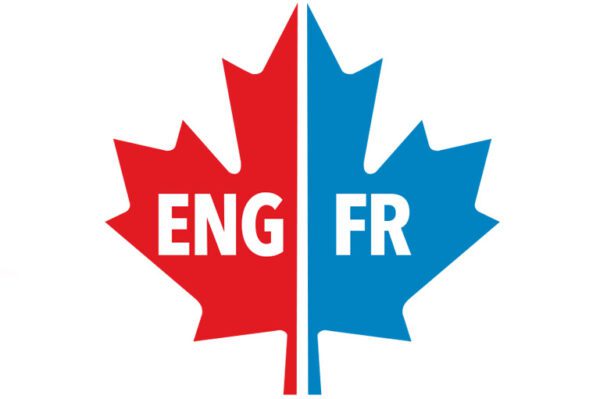Explore everything you need to know about Canada and finding the perfect veterinary job below.
If you are a Diplomate, Board Certified, or Residency trained Veterinarian interested in finding a job in Canada or looking to learn more about why Canada is one of the top relocation destinations for veterinary professionals, read on.
When it comes to finding the perfect place to relocate, Board Certified/Diplomate Veterinarians will find that Canada stands out as an exceptional choice. Known for its breathtaking landscapes, high quality of life, and welcoming culture, Canada offers a unique blend of natural beauty and modern convenience. The country also boasts a rapidly growing veterinary referral network, providing ample opportunities for professional growth and collaboration.
By choosing Canada as your new home, you’ll not only advance your career but also enjoy a fulfilling lifestyle in one of the world’s most desirable countries.
Overview
Stunning Natural Beauty
Canada’s landscapes are nothing short of spectacular. From the rugged Rocky Mountains to the serene shores of the Great Lakes, the country’s natural beauty is diverse and awe-inspiring. Whether you’re an outdoor enthusiast or simply someone who appreciates a picturesque view, Canada has something for everyone.
Banff National Park:
Nestled in the heart of the Rocky Mountains, Banff offers stunning vistas, pristine lakes, and abundant wildlife.
Niagara Falls:
One of the most famous natural attractions in the world, Niagara Falls provides a breathtaking spectacle of cascading water.
Pacific Rim National Park Reserve:
Located on Vancouver Island, this park features lush rainforests, beautiful beaches, and excellent hiking trails.
High Quality of Life
Canada consistently ranks high in global quality of life indices. The country’s commitment to healthcare, education, and social services ensures that residents enjoy a comfortable and secure lifestyle. With its clean cities, low crime rates, and excellent public services, Canada provides an environment where families can thrive.
Healthcare:
Canada’s universal healthcare system is accessible to all residents, ensuring everyone receives the care they need.
Education:
The country boasts some of the best educational institutions in the world, including the University of Toronto and McGill University.
Public Services:
Efficient public transportation and community services contribute to the overall high standard of living.
Vibrant Cities with Unique Charm
Canada’s cities offer a blend of modern amenities and historical charm. Each city has its own unique character, making it easy to find a place that feels like home. From bustling metropolises to quaint towns, Canada has it all.
Toronto:
As Canada’s largest city, Toronto is a bustling hub of culture, business, and entertainment. It’s known for its diverse neighborhoods, world-class museums, and vibrant arts scene.
Vancouver:
Surrounded by mountains and ocean, Vancouver is perfect for those who love the outdoors. The city is also known for its sustainable living practices and multicultural atmosphere.
Quebec City:
With its cobblestone streets and historic architecture, Quebec City offers a charming European feel. It’s a great place for those who appreciate history and culture.
Outdoor Adventures Abound

Canada is a paradise for outdoor enthusiasts. With its vast wilderness areas and numerous national parks, there are endless opportunities for adventure. Whether you enjoy skiing, hiking, kayaking, or wildlife watching, Canada’s natural playground is at your doorstep.
Whistler:
One of the top ski destinations in the world, Whistler offers world-class slopes and stunning mountain scenery.
Algonquin Provincial Park:
Ideal for canoeing and camping, this park in Ontario provides a true back-to-nature experience.
Gros Morne National Park:
Located in Newfoundland, this park offers dramatic landscapes, including fjords, mountains, and coastal cliffs.
Welcoming and Inclusive Culture

Canada is known for its friendly and inclusive society. The country embraces multiculturalism, making it a welcoming place for people from all backgrounds. This cultural diversity enriches the Canadian experience and fosters a strong sense of community.
Cultural Festivals:
Events like Toronto’s Caribbean Carnival and Vancouver’s Chinese New Year Festival celebrate the country’s diverse heritage.
Open-Mindedness:
Canada was one of the first countries to legalize same-sex marriage and is known for its progressive attitudes.
Community Spirit:
From neighborhood block parties to community service initiatives, there’s a strong sense of togetherness in Canadian communities.
Affordable Living Costs and Spacious Housing
Compared to many other developed countries, Canada offers affordable living costs and spacious housing options. Whether you prefer city living or a more rural setting, you can find a home that suits your lifestyle and budget.
Real Estate
Housing in Canada is generally more affordable than in many European countries, with a range of options from modern condos to large family homes.
Cost of Living:
While costs can vary by region, overall, Canada offers a good balance of affordability and quality of life.
Conclusion
Relocating to Canada offers an unparalleled combination of natural beauty, high quality of life, vibrant cities, outdoor adventures, a welcoming culture, and affordable living. Whether you’re looking for a bustling urban environment or a peaceful retreat in nature, Canada has something to offer everyone. Make Canada your new home and discover the endless possibilities this incredible country has to offer.
Climate
Discover the Diverse Climate of Canada: A Perfect Fit for Every Lifestyle

With a dynamic and varied climate that caters to all preferences? Look no further than Canada! From the crisp air of its northern territories to the mild, temperate zones along its coasts, Canada’s climate is as diverse as its landscape. Here’s why Canada’s unique weather patterns make it the ideal destination for everyone, whether you crave snowy winters, vibrant autumns, sunny summers, or mild springs.
Embrace the Four Seasons
Spring: A Season of Renewal
Spring in Canada is a time of rebirth and rejuvenation. As the snow melts, the country bursts into a riot of color with blooming flowers, budding trees, and the return of migratory birds.
Cherry Blossoms in Vancouver:
The city becomes a sea of pink and white blossoms, offering a picturesque backdrop for outdoor activities.
Tulip Festival in Ottawa:
Experience a breathtaking display of over a million blooming tulips in the nation’s capital.
Summer: A Season of Adventure
Canada’s summer season is characterized by warm, sunny days and cool, comfortable nights. With temperatures ranging from mild to hot depending on the region, it’s the perfect time for outdoor adventures and relaxation.
Beaches and Lakes:
Enjoy over 2000 hours of sunshine annually in many parts of Canada, making it ideal for swimming, boating, and beach activities. Long Beach on Vancouver Island and Wasaga Beach in Ontario are prime spots.
Festivals and Events:
Summer is packed with music festivals, cultural events, and outdoor markets. Don’t miss the Calgary Stampede or the Toronto International Film Festival.
Autumn: A Season of Splendor
Autumn in Canada is a spectacle of color, with forests transforming into a canvas of reds, oranges, and yellows. The crisp, cool air and stunning fall foliage create an enchanting atmosphere.
Fall Foliage:
Regions like Quebec and Ontario offer some of the most vibrant autumn displays, perfect for scenic drives and hikes.
Harvest Festivals:
Celebrate the season with local harvest festivals, featuring fresh produce, artisanal goods, and traditional foods.
Winter: A Season of Magic
For those who love winter sports or simply enjoy the beauty of a snowy landscape, Canada’s winter is a wonderland. With reliable snowfall and well-maintained winter infrastructure, Canada is a top destination for winter enthusiasts.
World-Class Ski Resorts:
Whistler Blackcomb in British Columbia and Mont-Tremblant in Quebec are renowned for their excellent skiing and snowboarding conditions.
Winter Festivals:
Experience the magic of winter festivals like Winterlude in Ottawa and the Quebec Winter Carnival, complete with ice sculptures, parades, and skating.
Climate Diversity by Region
Pacific Coast (British Columbia):
British Columbia, particularly the coastal regions like Vancouver and Victoria, enjoys a mild, temperate climate. Winters are wet but not too cold, and summers are warm and pleasant, making it a perfect location for those who prefer moderate weather year-round.
Prairies (Alberta, Saskatchewan, Manitoba):
The Prairies experience a continental climate with hot summers and cold winters. Cities like Calgary and Edmonton benefit from the Chinook winds, which can bring rapid temperature increases during winter, providing a brief respite from the cold.
Central Canada (Ontario, Quebec):
Ontario and Quebec experience four distinct seasons. Summers are hot and humid, while winters can be quite cold with significant snowfall, especially in the northern parts. The spring and fall are particularly beautiful with mild temperatures and stunning natural beauty.
Atlantic Canada (Newfoundland and Labrador, Nova Scotia, Prince Edward Island, New Brunswick):
Atlantic Canada has a maritime climate, with mild, damp winters and cool summers. The proximity to the ocean moderates the temperatures, making it a great choice for those who enjoy a more consistent climate.
Northern Canada (Yukon, Northwest Territories, Nunavut):
The northern regions of Canada experience an arctic and subarctic climate, with long, cold winters and short, cool summers. This region is ideal for those who are fascinated by the beauty of the Arctic and enjoy activities like dog sledding and viewing the Northern Lights.
Why Canada’s Climate is Perfect for You
 Outdoor Activities Year-Round
Outdoor Activities Year-Round
Canada’s varied climate offers something for every outdoor enthusiast. Whether you’re into skiing, snowboarding, hiking, kayaking, or simply enjoying the great outdoors, Canada’s seasons provide endless opportunities for adventure.
A Climate for Every Preference
Whether you prefer the snowy winters of the Rockies, the sunny summers by the Great Lakes, the mild year-round temperatures of the Pacific Coast, or the vibrant autumns of Quebec, Canada has a climate to suit every preference.
Healthy Living Environment
Canada’s clean air and abundant sunshine contribute to a healthy lifestyle. Many parts of Canada enjoy more than 2000 hours of sunshine annually, which is significantly more than in countries like the UK. This sunshine is not only great for outdoor activities but also beneficial for mental and physical health.
Natural Beauty All Year Long
Each season in Canada brings its own unique beauty. From the blooming flowers of spring and the lush greenery of summer to the vibrant fall foliage and the sparkling winter snow, Canada’s natural landscapes are stunning year-round.
Conclusion
Relocating to Canada means experiencing a diverse and beautiful climate that caters to all lifestyles and preferences. Whether you’re looking for adventure, tranquility, or simply a place with changing seasons to enjoy, Canada’s climate is perfect for you. Embrace the opportunity to live in a country where nature’s splendor is on full display throughout the year. Make Canada your new home and enjoy all the wonderful climate benefits it has to offer.
Cost of Living
Affordable Housing

One of the most significant expenses for any household is housing. In Canada, you’ll find that housing costs are generally more affordable compared to many other developed countries.
Variety of Housing Options: Whether you prefer a modern condo in the heart of the city, a spacious suburban home, or a cozy rural cottage, Canada offers a wide range of housing options to suit every budget.
Lower Cost per Square Foot: Compared to places like the UK, Canada offers more space for your money. Even in major cities like Toronto and Vancouver, you can find housing that is more affordable than in other global metropolises.
First-Time Homebuyer Incentives: Canada offers several programs to assist first-time homebuyers, making it easier to own property. These include tax credits, down payment assistance, and favorable mortgage rates.
Reasonable Utility Costs

Utilities, including electricity, water, and heating, are essential expenses. In Canada, these costs are relatively low, contributing to the overall affordability of living here.
Energy Efficiency: Many Canadian homes are built with energy efficiency in mind, reducing heating and cooling costs. Programs like the Canada Greener Homes Grant help homeowners make energy-efficient upgrades.
Affordable Internet and Phone Services: Canada offers competitive rates for internet and phone services, ensuring you stay connected without a hefty bill.
Groceries and Everyday Necessities

The cost of groceries and everyday necessities in Canada is comparable to, if not lower than, other developed countries. You can find a variety of options that fit different budgets, from local markets to large supermarket chains.
Diverse Options: From farmers’ markets offering fresh local produce to discount grocery stores with budget-friendly prices, you can find what you need without overspending.
Bulk Buying: Stores like Costco and Walmart offer bulk buying options, helping families save on everyday items.
Competitive Pricing: Supermarkets in Canada often have competitive pricing and frequent sales, making it easier to manage your grocery budget.
Healthcare Costs

Canada is renowned for its universal healthcare system, which provides essential medical services to all residents without direct charges at the point of care. This significantly reduces the overall cost of living and offers peace of mind.
Universal Coverage: Basic healthcare services are covered through taxes, meaning no out-of-pocket expenses for doctor visits, hospital stays, and essential medical procedures.
Prescription Coverage: While prescription medications are not fully covered, many provinces offer programs to help with the costs, and private insurance plans are available for additional coverage.
Education and Childcare

For families, the cost of education and childcare is a crucial consideration. Canada offers high-quality education and affordable childcare options.
Public Education: Public schools in Canada provide excellent education and are funded through taxes, meaning no tuition fees for residents.
Affordable Childcare: Various government programs and subsidies are available to help reduce the cost of childcare, making it more accessible for working families.
Higher Education: Compared to the United States and the UK, Canadian universities and colleges offer lower tuition fees, making higher education more affordable.
Transportation Costs

Canada’s efficient public transportation systems and affordable fuel prices contribute to lower transportation costs.
Public Transit: Cities like Toronto, Vancouver, and Montreal offer extensive public transit systems that are both reliable and affordable. Monthly passes and discounts for students and seniors further reduce costs.
Affordable Gasoline: Gas prices in Canada are generally lower than in many European countries, reducing the cost of car ownership and commuting.
Cycling and Walking: Many Canadian cities are bike-friendly and have pedestrian-friendly infrastructure, promoting cheaper and healthier modes of transportation.
Entertainment and Leisure

Enjoying life in Canada doesn’t have to be expensive. The country offers a wealth of free or low-cost recreational activities and cultural experiences.
Outdoor Activities: With its stunning natural landscapes, Canada offers countless free outdoor activities like hiking, biking, skiing, and camping.
Cultural Events: Many cities host free festivals, concerts, and public events throughout the year, providing affordable entertainment options for everyone.
Public Spaces: Parks, beaches, and community centers are well-maintained and often free to access, offering great places to relax and enjoy time with family and friends.
Lower Overall Living Expenses

When you consider the overall cost of living, including housing, utilities, groceries, transportation, and healthcare, Canada offers excellent value for money.
Comparative Savings: According to Numbeo, Canada’s cost of living is lower than in many major cities around the world, including London, New York, and Sydney.
Purchasing Power: Canadians enjoy higher purchasing power compared to residents of many other developed countries, allowing for a comfortable lifestyle with fewer financial stresses.
Conclusion
Relocating to Canada offers not only a high quality of life but also a cost-effective one. From affordable housing and utilities to reasonable grocery and healthcare costs, Canada provides a balanced lifestyle that doesn’t strain your finances. With its diverse climate, beautiful landscapes, and welcoming culture, Canada is the ideal destination for those looking to live comfortably and affordably. Make the smart move today and experience all the financial benefits of living in Canada!
Culture
1. Multiculturalism

Cultural Mosaic
Canada prides itself on being a multicultural society. Rather than a “melting pot” where cultures blend into one, Canada is a “cultural mosaic,” where different cultures coexist and maintain their unique identities.
Immigration: Canada’s immigration policies are among the most welcoming in the world. Major cities like Toronto, Vancouver, and Montreal are incredibly diverse, with large communities from Asia, Europe, the Middle East, Africa, and the Americas.
Festivals and Celebrations: Cultural festivals such as Toronto’s Caribana, Vancouver’s Chinese New Year Parade, and Montreal’s Jazz Festival celebrate this diversity.
Cuisine: The diversity of cultures has led to a vibrant food scene, with a wide variety of international cuisines available, from sushi to shawarma, and from poutine to butter chicken.
2. Indigenous Heritage

Rich Indigenous Traditions
The Indigenous peoples of Canada, including the First Nations, Métis, and Inuit, have a profound influence on the country’s culture. Their traditions, languages, and art form an integral part of Canadian heritage.
Art and Music: Indigenous art, such as the totem poles of the Pacific Northwest and the intricate beadwork of the Plains tribes, is widely respected and preserved. Music and dance are also vital, with powwows and other cultural gatherings celebrated throughout the country.
Languages: Efforts are ongoing to revitalize Indigenous languages, with many schools incorporating Indigenous language programs.
Cultural Sites: Sites such as Head-Smashed-In Buffalo Jump in Alberta and the totem poles in Stanley Park, Vancouver, are testament to the rich history and culture of Indigenous peoples.
3. Bilingualism

English and French
Canada is officially bilingual, with English and French as its two official languages. This bilingualism is a core part of Canadian identity, particularly in the province of Quebec.
Language Use: French is predominantly spoken in Quebec, but there are significant Francophone communities in New Brunswick (the only officially bilingual province), Ontario, and Manitoba.
Cultural Influence: Quebec’s French heritage is evident in its unique culture, including its literature, cinema, music, and cuisine.
4. Canadian Values

Inclusivity and Tolerance
Canadians are known for their politeness, tolerance, and inclusivity. These values are reflected in the country’s social policies and the general demeanor of its people.
Healthcare: Canada’s universal healthcare system is a source of national pride and a reflection of its commitment to equality.
Social Policies: Policies supporting gender equality, LGBTQ+ rights, and multiculturalism are deeply ingrained in Canadian society.
Politeness: Canadians are often stereotyped as being extremely polite and apologetic, a reflection of their respectful and considerate nature.
5. Outdoor Lifestyle

Connection to Nature
Canada’s vast and varied landscapes provide ample opportunities for outdoor activities, which are a significant part of Canadian life.
National Parks: From Banff and Jasper in the Rockies to Gros Morne in Newfoundland, Canada’s national parks are world-renowned.
Recreational Activities: Canadians enjoy a range of outdoor activities including skiing, snowboarding, hiking, canoeing, and camping.
Wildlife: The country’s rich wildlife, including bears, moose, and whales, plays a prominent role in Canadian culture and tourism.
6. Sports

National Pastimes
Sports are an important aspect of Canadian culture, with hockey often considered the national pastime.
Ice Hockey: The sport is deeply ingrained in the national psyche, with the NHL and events like the Stanley Cup and Winter Olympics being major highlights.
Lacrosse: Recognized as Canada’s official summer sport, lacrosse has Indigenous origins and a long history in the country.
Winter Sports: Skiing, snowboarding, and curling are popular winter sports, reflecting the country’s cold climate and snowy winters.
7. Arts and Entertainment

Creative Expression
Canada has a thriving arts scene, with significant contributions to literature, music, film, and theater.
Literature: Renowned authors like Margaret Atwood, Alice Munro, and Michael Ondaatje have put Canadian literature on the global map.
Music: Canada has produced numerous international music stars, including Celine Dion, Drake, and Justin Bieber.
Film and Television: Canadian actors, directors, and filmmakers have gained international acclaim, and cities like Toronto and Vancouver are major centers for film production.
Conclusion
Canadian culture is a rich, diverse, and dynamic blend of traditions and influences from around the world. Its commitment to multiculturalism, inclusivity, and respect for both its Indigenous heritage and bilingual nature make it unique. Whether through its diverse cuisine, vibrant arts scene, love of outdoor activities, or national sports, Canadian culture offers something for everyone. This welcoming and inclusive nature, combined with its vast natural beauty, makes Canada a unique and attractive place to live and visit.
Education
Unlock Your Future: Why Canada’s Education System is the Best Choice for Your Family

When considering relocation, one of the most critical factors for families is the quality of education available. Canada’s education system is globally recognized for its excellence, inclusivity, and innovation. From early childhood education to world-class universities, Canada offers an unparalleled educational experience that prepares students for a successful future. Here’s why Canada’s education system makes it the perfect destination for families seeking the best for their children.
World-Class Education Standards
Canada consistently ranks among the top countries in global education standards. Its commitment to high-quality education is evident at all levels, from elementary schools to universities.
PISA Rankings:
Canadian students consistently perform well in the Programme for International Student Assessment (PISA), particularly in reading, science, and mathematics.
High Literacy Rates:
Canada boasts one of the highest literacy rates in the world, reflecting its strong emphasis on foundational education.
Inclusive and Equitable Education
Canada’s education system is built on the principles of inclusivity and equity. Every child, regardless of their background or needs, has access to high-quality education.
Special Education Programs:
Schools across Canada offer robust support for students with special needs, ensuring they receive personalized education plans and resources.
Multicultural Curriculum:
Canada’s diverse society is reflected in its curriculum, which celebrates multiculturalism and promotes understanding and inclusion.
Early Childhood Education
The foundation of a strong education begins in early childhood. Canada offers excellent early childhood education programs that set the stage for lifelong learning.
High-Quality Daycare and Preschool:
Canadian daycare centers and preschools provide a nurturing and stimulating environment for young children, focusing on play-based learning.
Government Support:
Various provincial programs offer subsidies and support to ensure all families have access to affordable early childhood education.
Comprehensive Public Education System
Canada’s public education system is free and accessible to all residents, ensuring every child has the opportunity to receive a quality education.
Strong Public Schools:
Canadian public schools are well-funded and staffed by highly qualified teachers, providing a robust education that meets national standards.
Provincial Curriculums:
Each province has its own curriculum tailored to regional needs while maintaining high national standards.
Innovative Teaching Methods
Canada is at the forefront of educational innovation, incorporating the latest teaching methods and technologies to enhance learning experiences.
STEM Education:
Emphasis on Science, Technology, Engineering, and Mathematics (STEM) prepares students for future careers in high-demand fields.
Digital Learning:
Canadian schools integrate technology into the classroom, using digital tools and resources to support interactive and personalized learning.
Bilingual Education
Canada’s commitment to bilingualism offers students the unique advantage of becoming proficient in both English and French.
French Immersion Programs:
Many schools across Canada offer French immersion programs, providing students with the opportunity to become fluent in Canada’s two official languages.
Cultural Enrichment:
Bilingual education enhances cultural understanding and opens up additional career opportunities in a globalized world.
Extracurricular Opportunities
Education in Canada extends beyond the classroom. Schools offer a wide range of extracurricular activities that contribute to the holistic development of students.
Sports and Athletics:
From ice hockey to soccer, Canadian schools provide extensive athletic programs that promote physical health and teamwork.
Arts and Culture:
Students can participate in music, drama, art, and other cultural activities, fostering creativity and self-expression.
Clubs and Societies:
Various clubs and societies allow students to explore interests such as robotics, debate, and environmental stewardship.
Top-Notch Higher Education
Canada’s universities and colleges are among the best in the world, attracting students from all corners of the globe.
World-Renowned Universities:
Institutions like the University of Toronto, McGill University, and the University of British Columbia are consistently ranked among the top universities worldwide.
Affordable Tuition:
Compared to other countries like the USA and UK, Canadian universities offer high-quality education at a more affordable cost.
Research and Innovation:
Canadian universities are leaders in research and innovation, providing students with opportunities to engage in cutting-edge projects.
Support for International Students
Canada is a welcoming destination for international students, offering a supportive environment and numerous opportunities for academic and personal growth.
Student Services:
Universities provide comprehensive services to help international students adjust to life in Canada, including orientation programs, language support, and counseling.
Post-Graduation Opportunities:
Canada offers pathways for international students to gain work experience and even pursue permanent residency after graduation.
Lifelong Learning and Adult Education
Education in Canada is not just for the young. The country offers numerous opportunities for adult education and lifelong learning.
Continuing Education:
Many institutions offer evening and weekend classes, online courses, and professional development programs to help adults continue their education and advance their careers.
Community Colleges:
Community colleges provide accessible education and training programs that cater to the needs of local communities.
Conclusion
Canada’s education system is a beacon of excellence, offering inclusive, innovative, and high-quality education for all ages. With its strong public education system, world-class universities, and commitment to lifelong learning, Canada provides an environment where students can thrive academically, socially, and personally. Choosing Canada for your family means investing in a brighter future filled with opportunities for growth and success. Relocate to Canada and experience the exceptional education that can unlock the full potential of every student.
Veterinary Market
Overview of the Canadian Veterinary Market
The Canadian veterinary market is a vibrant and rapidly growing sector that plays a crucial role in ensuring the health and well-being of animals across the country. From companion animals to livestock, the veterinary industry in Canada is characterized by its advanced medical practices, high standards of care, and significant economic impact. Here’s an in-depth look at the key aspects of the Canadian veterinary market.
1. Market Size and Growth
Expanding Industry
The veterinary market in Canada has seen consistent growth over the past decade. Driven by increased pet ownership and greater awareness of animal health, the industry is poised for continued expansion.
Market Value: The Canadian veterinary market was valued at approximately CAD 4 billion in recent years and is projected to grow at a compound annual growth rate (CAGR) of around 5-6% over the next few years.
Employment: The industry employs thousands of veterinarians, veterinary technicians, and support staff, contributing significantly to the Canadian economy.
2. Companion Animal Segment
Rising Pet Ownership
Pet ownership in Canada is on the rise, with over 60% of households owning at least one pet. This trend has driven demand for veterinary services, including routine check-ups, vaccinations, and specialized treatments.
Dogs and Cats: Dogs and cats make up the majority of companion animals, with veterinary services for these pets representing a significant portion of the market.
Pet Health Insurance: The popularity of pet health insurance is increasing, providing owners with better access to veterinary care and contributing to market growth.
3. Livestock and Production Animal Segment
Essential Services for Agriculture
Veterinary services for livestock and production animals are vital to Canada’s agricultural sector. These services ensure the health and productivity of animals used for meat, dairy, and other products.
Dairy and Beef Cattle: Veterinary care for dairy and beef cattle is a major focus, with services ranging from disease prevention and treatment to reproductive health.
Poultry and Swine: The poultry and swine industries also rely heavily on veterinary expertise to manage health issues and improve production efficiency.
4. Advanced Medical Practices
Cutting-Edge Treatments
The Canadian veterinary market is at the forefront of medical advancements, offering a wide range of sophisticated treatments and technologies.
Diagnostics: Advanced diagnostic tools, including digital imaging and laboratory testing, enable accurate and early detection of health issues.
Surgery and Rehabilitation: Veterinary practices offer specialized surgical procedures and rehabilitation services, including physiotherapy and hydrotherapy.
Telemedicine: The adoption of telemedicine in veterinary care has increased, providing remote consultations and improving access to veterinary services.
5. Veterinary Education and Training
High Standards of Education
Canada is home to several prestigious veterinary schools that provide comprehensive education and training to aspiring veterinarians.
Accredited Programs: Veterinary schools in Canada are accredited by the American Veterinary Medical Association (AVMA), ensuring high educational standards.
Continuing Education: Veterinarians in Canada are required to engage in continuing education to stay updated on the latest advancements and best practices.
6. Regulatory Environment
Strict Regulations and Standards
The veterinary industry in Canada is highly regulated to ensure the safety and efficacy of veterinary services and products.
Veterinary Licensing: Veterinarians must be licensed by provincial regulatory bodies, which enforce standards of practice and professional conduct.
Drug Approval: Veterinary drugs and treatments are regulated by Health Canada, ensuring that they meet stringent safety and efficacy criteria.
7. Challenges and Opportunities
Addressing Market Needs
The Canadian veterinary market faces several challenges, but these also present opportunities for growth and innovation.
Rural Access: There is a need to improve access to veterinary services in rural and remote areas, presenting opportunities for mobile veterinary clinics and telemedicine.
Workforce Shortages: Addressing the shortage of veterinarians, particularly in specialized fields, is critical for meeting market demand.
Technological Integration: Continued integration of technology in veterinary practices, such as electronic health records and AI-based diagnostics, can enhance service delivery and efficiency.
Conclusion
The Canadian veterinary market is a dynamic and essential component of the country’s healthcare system, providing vital services for both companion animals and livestock. With its robust growth, advanced medical practices, and high standards of education and regulation, the market is well-positioned for continued success. As pet ownership rises and the agricultural sector evolves, the demand for veterinary services will only increase, offering numerous opportunities for innovation and expansion in this vital industry.
Jobs, Salaries and Benefits
Salary range by Specialization
- Surgical Specialists: Veterinary surgeons generally earn towards the higher end of the salary spectrum, often ranging from CAD 180,000 to CAD 300,000 annually, depending on the complexity of procedures and the volume of cases.
- Internal Medicine Specialists: These specialists typically earn between CAD 180,000 and CAD 220,000. They often work on complex diagnostic cases and long-term treatment plans.
- Cardiologists and Oncologists: Salaries for cardiologists and oncologists can also be on the higher end, often ranging from CAD 180,000 to CAD 250,000, due to the specialized nature of their work.
Salary by experience Level
- Entry-Level: New specialists or those with a few years of experience might start at the lower end of the salary range.
- Experienced Specialists: Those with many years of experience and a strong reputation in their field can command higher salaries, potentially reaching or exceeding CAD 250,000.
Salary range by geographic variation
- Urban vs. Rural: Specialists working in major cities like Toronto, Vancouver, or Calgary often earn more than those in rural areas due to the higher cost of living and increased demand for specialized care.
- Regional Differences: Salaries might vary by province, with some regions offering higher compensation to attract and retain specialized talent.
Benefits
- Health Insurance: Health insurance typically includes medical, dental, and vision care. Coverage specifics can vary, but many employers offer plans that cover a significant portion of these expenses. Some employers extend health benefits to dependents and family members.
- Retirement Plans:
- Pension Plans: Some practices offer defined benefit pension plans, which provide a guaranteed income in retirement based on salary and years of service.
- RRSP Contributions: Employers might contribute to a Registered Retirement Savings Plan (RRSP), helping specialists save for retirement.
- Continuing Education:
- Funding: Many practices support ongoing education by covering costs for conferences, courses, and certification exams.
- Professional Development: This includes access to specialized training and seminars that help specialists stay current with advancements in their field.
- Paid Time Off:
- Vacation Days: Specialists typically receive 4-5 weeks of vacation per year, with additional days for personal or family needs. Study leave for Board exams could be up to 3 months full pay.
- Sick Leave: Paid sick leave policies are common, allowing specialists to take time off when ill without financial strain.
- Professional Liability Insurance: This insurance protects specialists against claims of malpractice or negligence. Most employers provide this coverage as part of the employment package.
- Work-Life Balance:
- Flexible Hours: Some practices offer flexible scheduling options or part-time roles to help balance work and personal life.
- Support Systems: Large practices or institutions might have additional support staff or resources to manage workload and prevent burnout.
- Additional Considerations
- Employment Type: Specialists might work in private practice, veterinary hospitals, research institutions, or teaching roles, which can influence salary and benefits.
- Private vs. Public Sector: Specialists working in the public sector or academic settings might have different benefits compared to those in private practice.
Overall, the compensation and benefits for veterinary specialists in Canada are designed to reflect their advanced training and the specialized nature of their work, with variations depending on the specific circumstances of their employment.
Licensing and Work Permits
How to Secure a Work Visa as a Veterinary Specialist in Canada
Imagine practicing veterinary medicine in a country where specialists earn up to $350,000 while enjoying a high quality of life in Canada’s stunning landscapes. With veterinary specialists in high demand, now is the perfect time to explore this exciting opportunity.
Ready to Take the Leap?
- Permanent Residency (PR): Make Canada your long-term home with the freedom to live and work indefinitely.
- Temporary Work Visa: Start your Canadian adventure with a short-term position, backed by a job offer.
- TN Visa: U.S. and Mexican citizens can fast-track their way to Canada under NAFTA.
- International Experience Canada (IEC): Perfect for young professionals eager to work and travel.
- LMIA: Secure your spot in Canada if other visas don’t apply, with your employer’s support.
Your Next Steps
- Check Your Eligibility: Find out which visa is right for you with a quick online assessment.
- Accredit Your Skills: Ensure your veterinary credentials are recognized in Canada.
- Land the Perfect Job: Partner with top recruiters to access exclusive opportunities.
- Apply for Your Visa: Fast-track your application through programs like Express Entry.







 Outdoor Activities Year-Round
Outdoor Activities Year-Round
